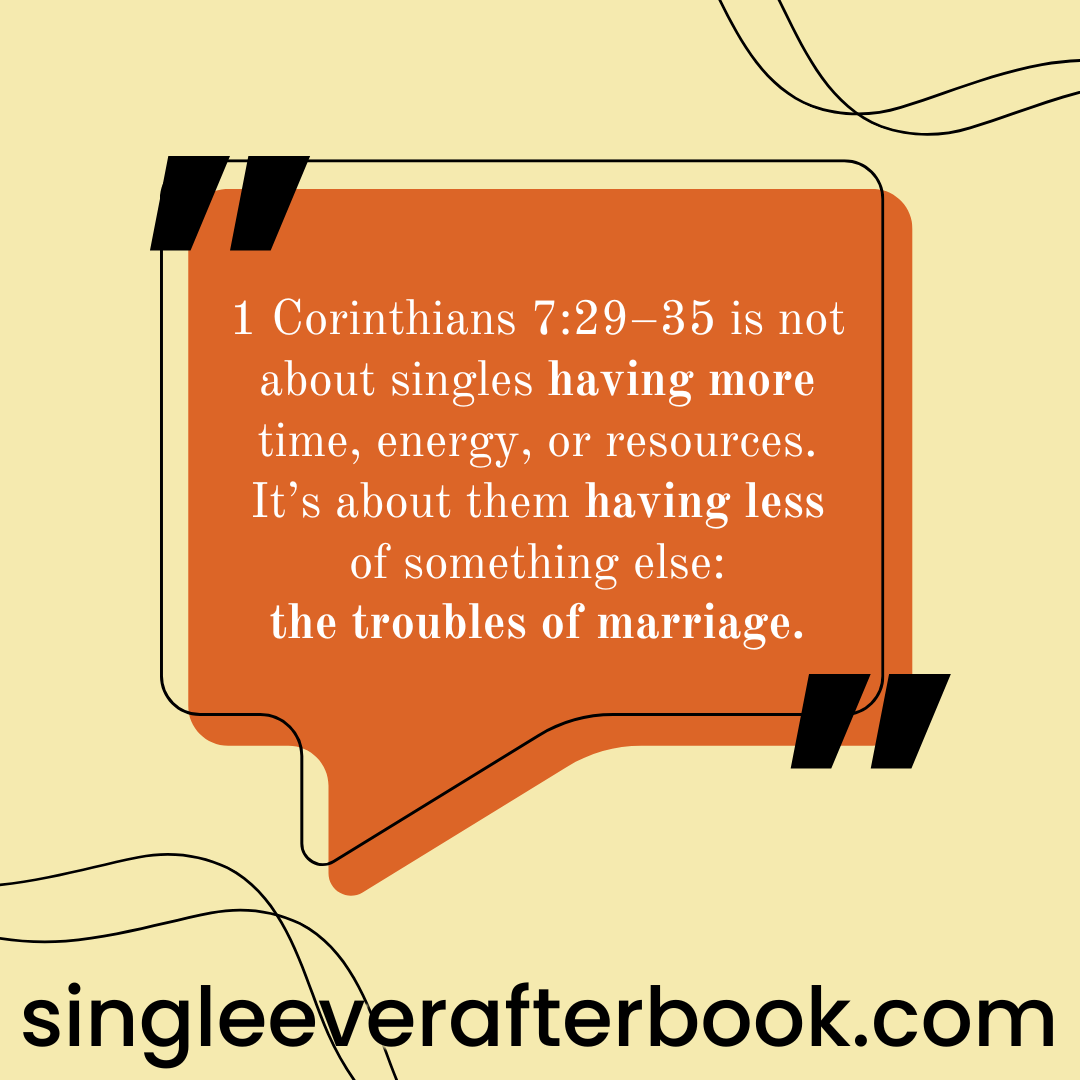Does Marriage Give You a Hall-Pass on Undivided Devotion?
Inside Chapter Five of 'Single Ever After'
This is the chapter that I expect will be the most new to many readers—and perhaps the most surprising. It’s also the chapter that I’m most… nervous about putting out into the world.
We’ve all read 1 Corinthians 7. We’ve quoted it in sermons, Bible studies, and late-night Christian chats about marriage and singleness. But what if we’ve been seeing parts of it all slightly wrong? What if our default reading—especially around “undivided devotion” of verses 29-35—has been shaped more by cultural assumptions than biblical truth?
When I started working through this chapter, I kept returning to the image of a magic eye puzzle—you know the kind: you stare and stare and you just can’t bring it into focus. Until that moment when your eyes shift their perspective just a little and suddenly… There it is! You finally see what was there all along., And now you can’t unsee it.
Chapter Five reframes the passage many of us have used to support the idea that single Christians must live maximally devoted lives, while married Christians are understandably “divided.”
“Here’s how we usually understand Paul’s logic in [1 Corinthians 7:29-35]: singleness is a good thing, but, only so long as the single person isn’t distracted from putting it to good use, is entirely undivided in their devotion to the Lord, and is not thinking about themselves in any way. If not, then singleness is often considered to be compromised, illegitimate and perhaps even rebellious.
A married person gets a hall-pass on being divided in their devotion (something we’ll come back to a bit later). But singles don’t. And so, this passage is frequently translated into an expectation of instrumental austerity in singleness. But once again, if we take another look at the passage, we discover that our usual interpretation and application of it may have a few problems. In this chapter, I want to unpick some of the issues and suggest what I believe to be a better reading instead.”
Single Ever After (p. 100-101)
So much of what we believe about godly devotion—and distraction—has been subtly shaped by the deeply embedded assumptions that marriage comes with challenges and compromises, while the “freedom” of singleness demands purity of focus.
But when I really sat with this biblical passage, I found myself wondering: have we mistaken Paul’s pastoral realism for a permission slip? Have we created a tiered vision of devotion where singles must strive harder than their married counterparts? What if his point isn’t that marriage legitimates distraction, but that both married and unmarried believers are called to hold even the most precious earthly gifts loosely, with eyes fixed on eternity?
This chapter doesn’t argue against deep devotion. It invites us to ask what undivided devotion truly looks like—and who is called to it. (Spoiler alert: It’s all of us).
If that shifts your view, unsettles your reading, or sparks curiosity, I hope you’ll read the chapter itself. Because sometimes all it takes is one small perspective shift to see what was there all along—and never see it the same way again.
Over to You
💬 Leave a comment— Have you ever felt the pressure to “prove” your singleness (or “legitimate” someone else’s) through intense devotion? Or been subtly taught that marriage earns you a pass on spiritual distraction?
📖 Preorders for Single Ever After are open now. If this teaser for Chapter Five has intrigued you, consider ordering a copy and sharing it with your church or small group.
📬 Not subscribed yet? Click here to remedy that!
📣 Know someone who might be interested in this perspective-shifting take? Share this post and tag them in it.
📸 Why not share this image on your socials to help others consider devotion in singleness and marriage from a fresh (biblical) perspective?



I recall one time I got together with some fellow single Christians for a lunch and hangout at my house and we were discussing 1 Corinthians 7 and I put forth the idea that Paul says the one who has a wife should live as if they did not, they acted like I was making that up and it wasn't in the Bible. I had to go back and reread to make sure I hadn't made it up. Obviously, Paul didn't mean that the person who is married should ignore the responsibilities of marriage but I think he meant that they had a duty to be just as devoted as the single person even though it is challenging with having the responsibility of marriage. I look forward to reading your take on that chapter and see what you have to say on the matter.
I’m curious - married people will also claim that marriage has made them more sanctified. So singles are less holy AND have to be more devoted? Not fair!😄